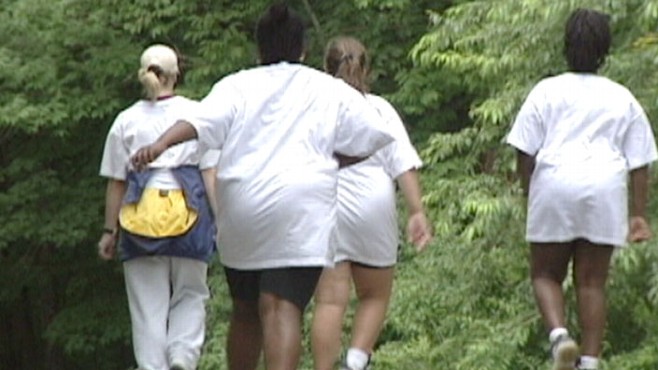Weight Loss Surgery and Kids

There was an interesting article in the New York Times about a young woman who had a Lap-Band weight loss surgery after years of suffering the emotional journey of an overweight kid. The story was very honest about what to expect with this type of surgery, and it also tracked the journey of the young woman. The story is of interest to many as more and more teens and adults are turning toward the option of weight loss surgery. The latest number of weight loss surgeries performed in the United States is 220,000 per year. That is a seven-fold increase over the past 10 years according to the New York Times article. Weight loss surgeries do save lives and also improve quality of lives for sure, but they aren’t for everyone. The surgeons do the surgery and are skilled at centers of excellence, but unless the patients come back, join support groups and stay in contact with dieticians, falling off track is way too easy and, unfortunately, many of them do, including the young woman in the NYT story.
I run several food addiction groups in Houston, and was featured as the psychotherapist for TLC’s show “Big Medicine.” On the show, I worked closely with Drs. Robert and Garth Davis. We tried to give the viewer an honest look at what happened with the weight loss surgery and the journey after. My work now is primarily with revisions. Revisions are the surgery done when the first weight loss surgery failed. My office is full, as are my support groups. What happened to the patients that so eagerly came into our offices feeling empowered and ready to give up their morbid obesity forever? They are replaced with patients who hang their head feeling like they failed. Even though they feel defeated, the ones I see are the fortunate ones who were able to step out of their shame cycle, call their insurance company and ask for a second chance. They need a second chance because neither they nor we (the health team) had a full picture of what was underneath their weight. They couldn’t see it prior to surgery, and since they are their own historians telling us their story, we are blinded also.
I believe in weight loss surgery, but I believe more in the knowledge we impart to the patient prior to and after the surgery. Performing an alteration, such as a weight loss surgery, is a huge decision, but in the case of a minor I think the whole bariatric medicine team must be on board. There has to be a built-in safety net to handle the transformation of the child as well as their family. Everyone who loves the patient must change when someone they love has weight loss surgery. The counselor, dietician, and surgeon must know all of the family members. We must know who is sabotaging and enabling that patient on an emotional level. Enablers are the people still giving the patient food as a source of love. Our bariatric treatment teams must also understand if simply making better food and lifestyle choices worked, it would have worked 20 diets ago. It did not. Obesity has an addictive component, and addictions are kept in place by denial. Most patients will tell you they are not addicted to food exactly the same as an alcoholic will tell you they aren’t addicted to alcohol. The question is: “Do you use food to comfort yourself?” If the patient says “YES,” then treat them for a food addiction. Do this because they are telling you they have a relationship with food that is emotionally based and most likely they are choosing food with high fat or high carbohydrates (not one of my patients has ever had an addiction/emotional relationship to steamed or raw vegetables).
Whenever a patient feels like a failure after going through the process of weight loss surgery and everything it entails, it is heart wrenching not only to them, but to me and anyone working in this field. If insurance companies won’t cover patient care for years to come after the surgery, then we in the field are going to have to put these measures in place and make them affordable to the patients. We cannot tell a patient they need to continue in groups and follow-ups if they can no longer afford the cost. Whoever said, “Weight loss surgery is a quick fix” truly never had weight loss surgery or worked with my patients. There is nothing quick about it. Obesity is a disease and once you have it, losing the weight is the easy part, managing that loss is a life long journey.
There are places that charge to attend support groups? Wow. The one run by my hospital is free, meets monthly and accepts ANYONE whether they had surgery here or not. In addition, I know there are several listed in the local Meetups.Com available to anyone. I hope others cities have the same because it is essential to our success in this!




utahgirll 81
Posted
Insightful, smart and on point. Great article, thanks for writing it. I will look again to see if you posted the link to the article...
Share this comment
Link to comment
Share on other sites